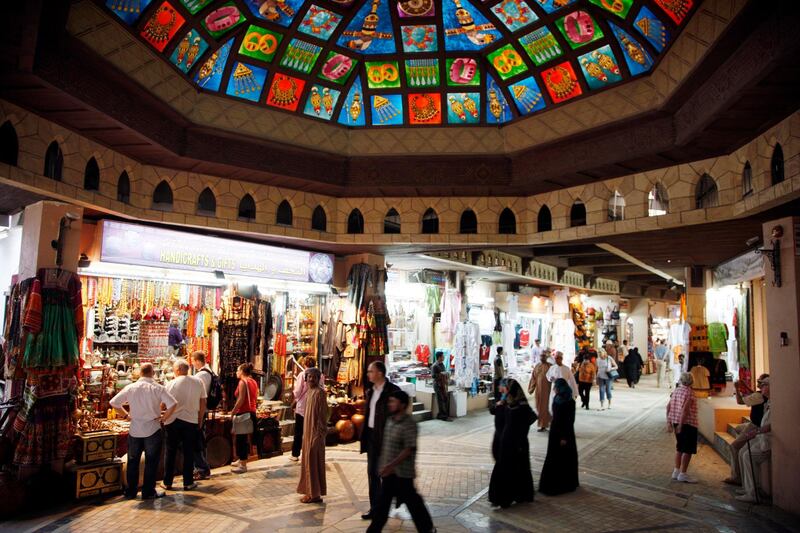Omanis earning minimum wage are calling for the government to increase their salaries to meet rising costs spurred by annual inflation.
The minimum wage is currently set at 325 Omani rials (Dh3,100) after an increase from 200 Omani rials by the Ministry of Manpower in 2013.
Most citizens, who earn minimum wage, work in the retail sector or low-level administrator jobs.
“I think it is time the government increases the minimum wage to a decent level, so we can look after our families properly,” said 27-year-old Raeed Al Balushi, who works at an electronics showroom. “It is too hard to live on 325 rials a month. You don’t get a lot these days for your shopping bag.”
Average inflation in Oman in the last three years has been recorded at 4.3 per cent, driven by food and fuel prices, according to government statistics.
The cost of petrol at the pump has increased by almost 75 per cent since the government scrapped its fixed-price policy in January last year — from 114 baisa (Dh1.1) per litre for regular petrol to 186 baisa in February 2017.
_____________
Read more:
Thousands of foreign workers in Oman not paid for months
Thousands of illegal foreign workers in Oman living in poverty
_____________
Khalifa Al Naadi, 31, a school bus driver, said he was working as a taxi driver during his free time to earn extra money.
“Food prices have gone up a lot in the last three years. I don’t bring home enough money to support my children,” he told The National. “Petrol is also expensive, and I struggle to make ends meet.
“People earning higher salaries don’t complain, but we who make minimum wage find it to be a challenge.”
Meanwhile, Abdulrahim Al Saadi said he was currently collecting signatures to file a petition to the Majlis Al Shura, an elected legislative body, to increase the minimum wage.
“I’m doing my rounds with the help of a few friends to get signatures from all minimum wage earners to then send [the petition] to the Majlis Al Shura,” said the 29-year-old, who is an administrative assistant at an engineering firm.
According to Omani legislation laws, Majlis Al Shura would need to approve the petition, which would them need a final approval by the cabinet of ministers.
For Mr Al Saadi and fellow campaigners, raising the minimum wage to 450 Omani rials would be considered fair.
Although there is no minimum wage set for civil service jobs, salaries in the public sector start at 475 rials.
“It will be almost the same as what civil servants get as a minimum salary, so in comparison, it would not be so bad,” Mr Al Saadi said.
Manpower experts agreed on minimum wage revision for the private sector, saying that the move, if it happens, would boost productivity in private companies.
Hareb Al Falahy, an independent manpower consultant, said: “More money in their pockets simply would mean working more, and companies would see higher profits.”





